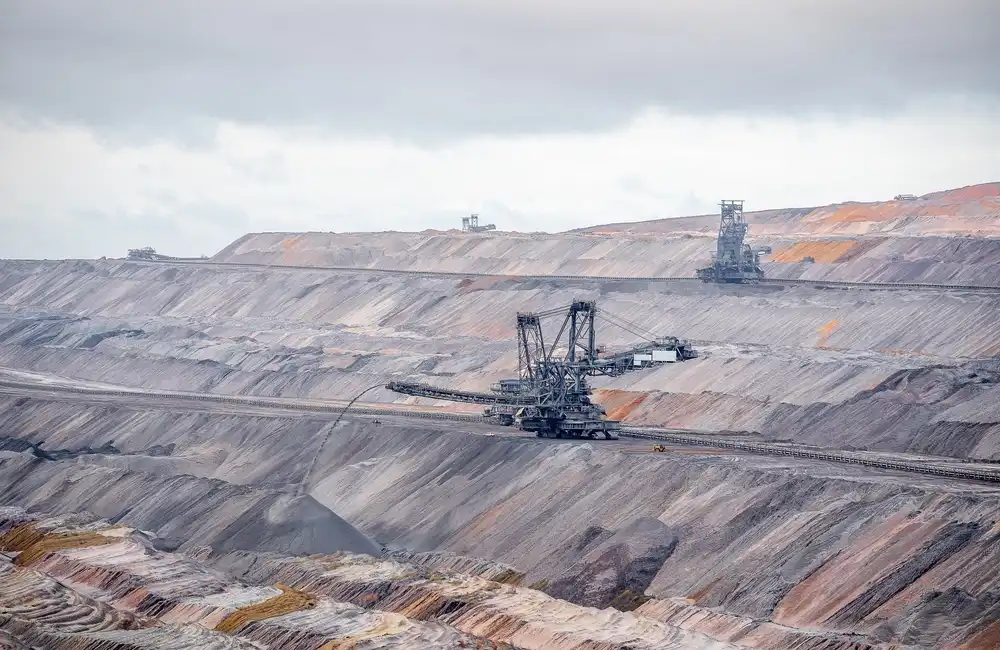The Ghana Ministry of Lands and Natural Resources made a major change in the mining sector on 16 April 2025 by turning down Gold Fields' request to renew its Damang mine lease.
The expiration of the 30-year lease on 18 April 2025 resulted in the government taking over operations at the site because the lease extension was denied. The Ghanaian state directed Gold Fields to stop operations and evacuate the mining site since the government is taking over operations for one of its critical mining properties.
Background on Damang Mine
The Damang gold mine in Ghana's Western Region serves as Gold Fields' major operational site since its establishment as a leading subsidiary of the South African mining giant. In 2023 mining operations ceased due to an end-of-life strategy and now only remaining stockpiles undergo processing. The Damang mine maintained its strategic importance by generating 135,000 ounces of gold in 2024 which constituted about 6 per cent of Gold Fields’ yearly production. The mine plays a crucial role both as an asset for Gold Fields and as an economic driver in Ghana.
The operation steadily supported local employment and tax income which reinforced its status as a primary foreign-run mine in Ghana's essential gold mining industry.
Regulatory and Operational Rationale for Lease Rejection
The Ministry of Lands declared regulatory deficiencies as the main cause for rejecting the lease application. Government authorities state that Gold Fields neglected to supply a validated mineral reserves statement while also omitting the necessary technical programme for lease renewal submission. The government decided to act decisively when the reported regulatory breaches from Gold Fields' failures to submit necessary documentation became known.
The decision represents Ghana’s national “economic reset” plan which seeks to optimise the country’s natural resource revenues. Ghana’s elimination of automatic lease renewals reveals its determination to maintain tighter control over mining operations and improve the future worth of its mining properties. Experts in the sector believe these changes will reshape how future mining operations negotiate their contracts.
Legal Challenges and Stakeholder Reactions
Gold Fields plans to fight to keep control over the Damang mine. The Africa Centre for Energy Policy (ACEP) announced that Abosso Goldfields Limited which operates as a subsidiary for Gold Fields has started legal action against the termination of their mining lease. The company has labeled the government's actions abrupt while seeking remedies for what they see as a breach of due process although lawsuit specifics remain limited.
Investors and stakeholders have begun debating how this decision might impact Ghana's future mining investment environment. International investors once viewed the country as a secure place to invest in mineral resources. Industry analysts have raised concerns that the public rejection of this lease might discourage future interest which will make it more challenging to secure long-term private investments. Ghanaweb commentators voiced worries that despite its regulatory justification the decision threatens investor trust during intense global competition for capital.
Broader Implications for Ghana’s Mining Sector
By taking control of Damang the government has implemented a policy change that will profoundly affect Ghana’s mining sector. Through its emphasis on national advantage rather than foreign ownership, Ghana seems to be reassessing how it interacts with international mining corporations.
Analysts believe this decision matches the worldwide pattern of resource nationalism despite its controversial nature. Resource-rich nations' governments are demanding greater mining revenue shares to ensure local economies benefit from natural resource exploitation. Maintaining a balanced approach is essential because excessive regulation and forceful policy changes could turn away potential investors and thus threaten economic growth opportunities.
The introduction of this lease renewal standard may cause governments to implement clauses requiring enhanced social responsibility measures or more comprehensive data-sharing agreements. Future lease auctions at Damang will probably establish norms for enhanced government involvement and supervision.
What’s Next for the Damang Mine?
After officially ending the lease the government has committed to facilitating a seamless transition of operations. The authorities have assured stakeholders about the protection of employees' job security and smooth operational continuity under state management. However, significant milestones remain on the horizon.
Revised guidelines that reflect Ghana’s economic reset priorities will serve as the framework when the government announces new terms for the Damang lease reissuance. Industry experts anticipate that the lease bidding process will draw interest from both well-established mining companies and new market entrants. Gold Fields’ ongoing legal fight is being closely watched because its outcome will shape Ghana's future approach to mining disputes and regulatory enforcement.
Stakeholders need to track important upcoming changes specifically the release of new lease terms and court rulings as well as the government schedule for choosing a new mining operator. Stakeholders should track developments in licence bids and new policy revisions as they will serve as key indicators to predict how the situation will unfold.
Conclusion
The rejection of Gold Fields’ lease renewal for the Damang mine by the Ghanaian government represents a major change from its traditional mining licensing strategy. Based on regulatory issues and a wider economic realignment initiative, this action highlights a conscious transition to emphasise national advantages in resource extraction.
However, the path forward is complex. Ghana aims to optimise mining profits but needs to build investor trust to ensure continued expansion of this crucial economic sector. The entire mining sector watches attentively as Ghana assumes state control of Damang amidst ongoing legal actions.
Subscribe to Advisors Gateway today to access customised analyses that will help you understand how these developments might affect African resource investments based on your business goals.






















